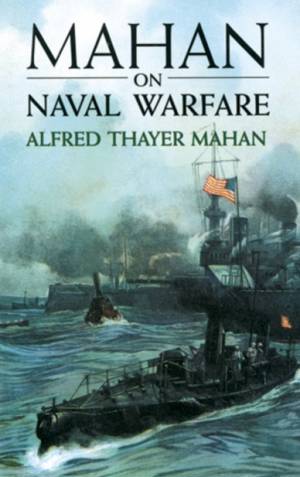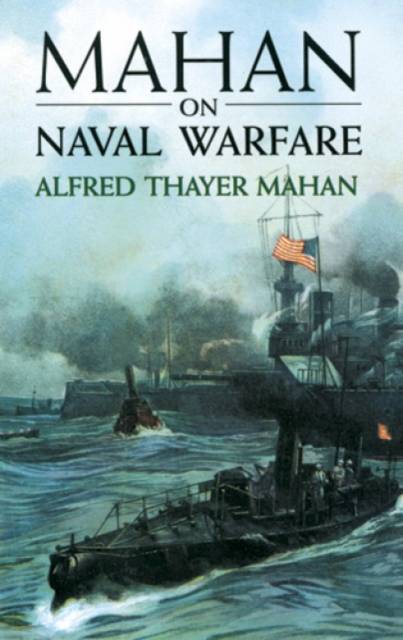
- Retrait gratuit dans votre magasin Club
- 7.000.000 titres dans notre catalogue
- Payer en toute sécurité
- Toujours un magasin près de chez vous
- Retrait gratuit dans votre magasin Club
- 7.000.000 titres dans notre catalogue
- Payer en toute sécurité
- Toujours un magasin près de chez vous
20,95 €
+ 41 points
Format
Description
Naval historians and maritime students alike will welcome this fascinating compendium of writings by one of the world's most influential and respected experts on naval warfare. Considered by many the greatest of all naval theorists, Admiral Mahan was revered by his contemporaries (including Kaiser Wilhelm II of Germany, who made Mahan mandatory reading for his naval officers) for the quality of his insight and analysis.
Mahan's close reading of history, his evaluation of the lessons of naval events and his predictions and prescriptions for the conduct of future naval policy contributed powerfully to the shaping of the twentieth century. His influence on naval theorists and policy makers in every great nation was profound, but nowhere was it stronger than among the three "upstart" powers, the United States, Japan and Germany. The Mahan-inspired devotion of these three powers to challenging the naval superiority of the existing naval triumvirate, Britain, France and Russia, and then each other, was among the catalysts for the eruptions of 1914 and 1939.
While Mahan's theories received their most cogent statement in his masterwork, The Influence of Sea Power Upon History, 1660-1783, he expanded upon them in many other books, articles and essays. The present volume comprises a rich selection of his shorter pieces. Ranging widely, these selections cover over 40 different topics in a comprehensive discussion of naval principles, sea power in history, and naval and national policies. Taken together, they offer the distilled wisdom, sober evaluations and closely reasoned analysis of a celebrated figure who was an American naval officer in the Civil War, second president of the Naval War College and one of the most outspoken delegates to the Peace Conference at The Hague in 1899.
This single volume of selections will enable naval officers, laymen, armchair sailors and students of world history to grasp quickly the essence of Mahan's ideas and their lasting effect upon naval policy and international affairs.
Mahan's close reading of history, his evaluation of the lessons of naval events and his predictions and prescriptions for the conduct of future naval policy contributed powerfully to the shaping of the twentieth century. His influence on naval theorists and policy makers in every great nation was profound, but nowhere was it stronger than among the three "upstart" powers, the United States, Japan and Germany. The Mahan-inspired devotion of these three powers to challenging the naval superiority of the existing naval triumvirate, Britain, France and Russia, and then each other, was among the catalysts for the eruptions of 1914 and 1939.
While Mahan's theories received their most cogent statement in his masterwork, The Influence of Sea Power Upon History, 1660-1783, he expanded upon them in many other books, articles and essays. The present volume comprises a rich selection of his shorter pieces. Ranging widely, these selections cover over 40 different topics in a comprehensive discussion of naval principles, sea power in history, and naval and national policies. Taken together, they offer the distilled wisdom, sober evaluations and closely reasoned analysis of a celebrated figure who was an American naval officer in the Civil War, second president of the Naval War College and one of the most outspoken delegates to the Peace Conference at The Hague in 1899.
This single volume of selections will enable naval officers, laymen, armchair sailors and students of world history to grasp quickly the essence of Mahan's ideas and their lasting effect upon naval policy and international affairs.
Spécifications
Parties prenantes
- Auteur(s) :
- Editeur:
Contenu
- Nombre de pages :
- 416
- Langue:
- Anglais
- Collection :
Caractéristiques
- EAN:
- 9780486407296
- Date de parution :
- 02-11-11
- Format:
- Livre broché
- Format numérique:
- Trade paperback (VS)
- Dimensions :
- 137 mm x 213 mm
- Poids :
- 476 g







